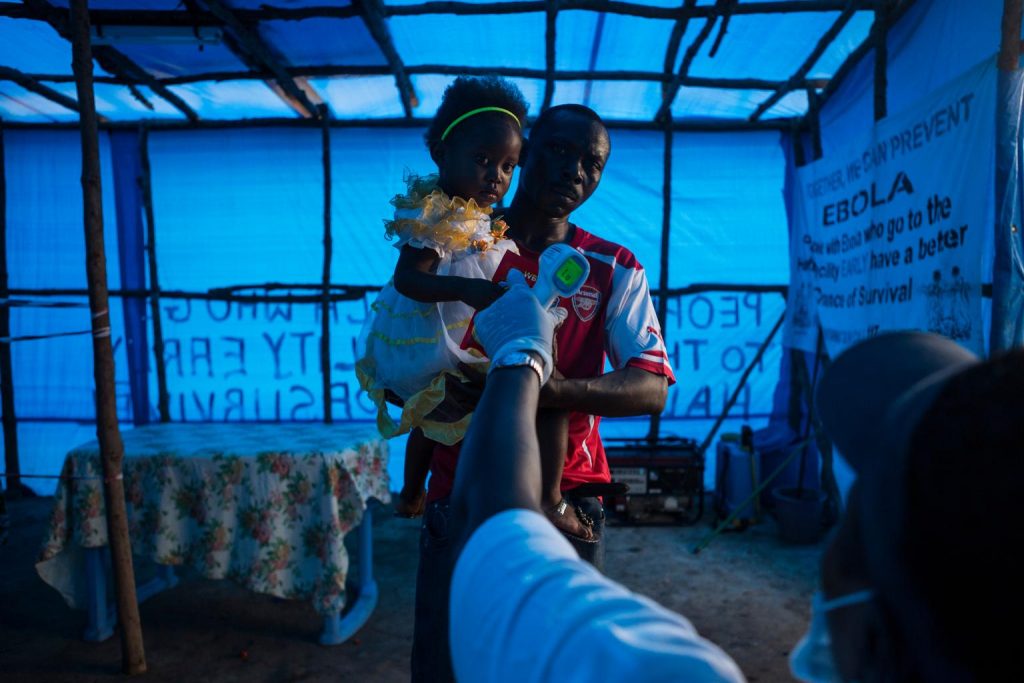Joanna Radin explores the role of the “hot zone” in immobilizing people, blood and information.
Evidence review
Frozen By the Hot Zone
Topics
HealthRegions
West and Central Africa
On 1 October, a man and the young girl he is carrying undergo temperature screenings at a checkpoint between the cities of Waterloo and Freetown, the capital. Travellers seeking to enter the capital are being screened at the checkpoint for signs of Ebola virus. A sign at the site promotes early initiation of Ebola treatment.
In early October 2014, Sierra Leone is among countries in West Africa affected by the worst outbreak of Ebola virus disease (EVD) in history. As of 16 September, UNICEF estimates that 8.5 million children and young people under the age of 20 live in areas affected by EVD in Guinea, Liberia and Sierra Leone, countries where disease transmission is widespread and intense. Of these, 2.5 million are under the age of 5. Preliminary UNICEF estimates (as of 30 September) also indicate that at least 3,700 children in the three countries have lost one or both parents to EVD since the start of the outbreak. By 1 October, 4,080 cases and 2,071 deaths had been confirmed in Guinea, Liberia, and Sierra Leone. UNICEF remains at the forefront of efforts to respond to and help curtail the outbreak, and is the lead agency for the United Nations on social mobilization in the Ebola response. In Sierra Leone where 2,179 cases and 575 EVD deaths were confirmed by 1 October UNICEF is supporting social mobilization efforts, including Ebola prevention messaging and outreach and the creation and distribution of awareness-raising materials. UNICEF assistance also includes psychosocial support for patients and their families, contact persons and community members affected by EVD; training for medical staff; and training for adults and children on EVD. UNICEF is seeking US $200 million as part of a broader six-month appeal for US $987.8 million by governments and humanitarian agencies, to respond to the outbreak.
Related content
Evidence review
Rapid evidence synthesis: Mpox community protection
This note presents a rapid synthesis of evidence related to community protection in countries affected by the mpox clade 1b outbreak. Synthesising evidence related to community protection for mpox Medline, Africa Journals Online and Global Index Medicus were searched. IFRC,…
SSHAP
2025
Report
Meeting report: The impact of global aid funding cuts on people and programmes in South Sudan
Report of a roundtable with government actors, academics, development partners and journalists in South Sudan on the sweeping impacts on people and programmes of aid cuts and multiple, intersecting crises.
Central and East Africa Hub
SSHAP
2025
Briefing
Key considerations: Home-based care for mpox in Central and East Africa
This brief outlines key considerations on health system requirements for safe and inclusive home-based care for mpox.
Central and East Africa Hub
SSHAP
2025
Question Bank
Tools
Questions bank for healthcare workers during infectious disease outbreaks
This question bank is a menu of qualitative questions related to healthcare workers’ knowledge, perceptions and practices during infectious disease outbreaks.
SSHAP
2025


